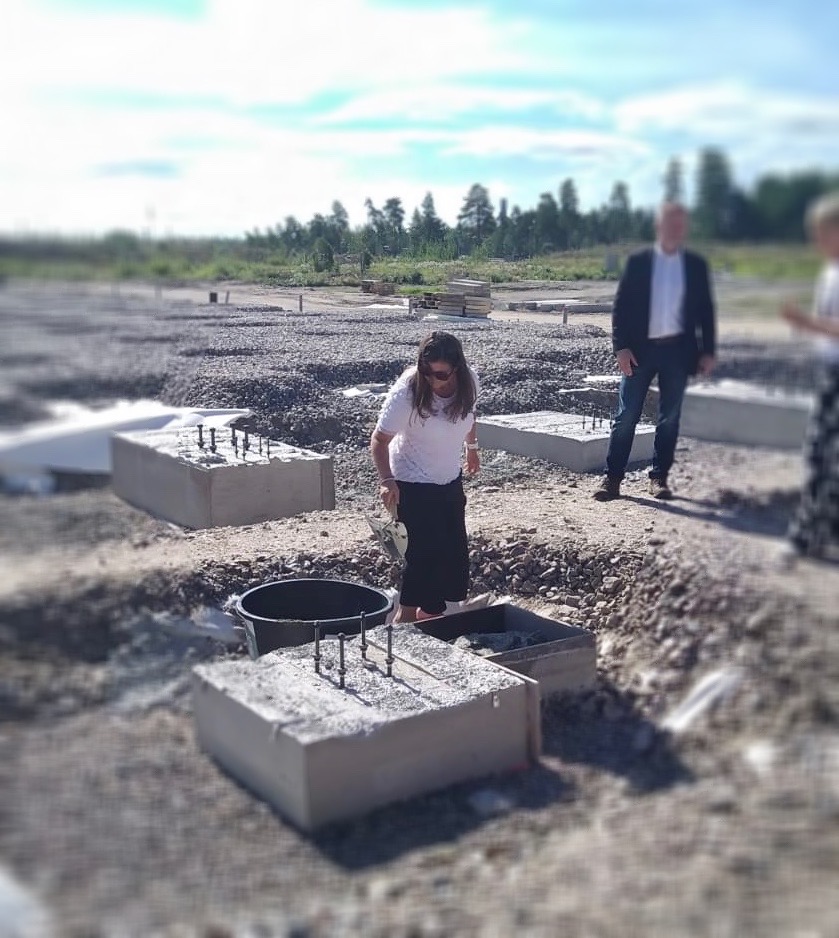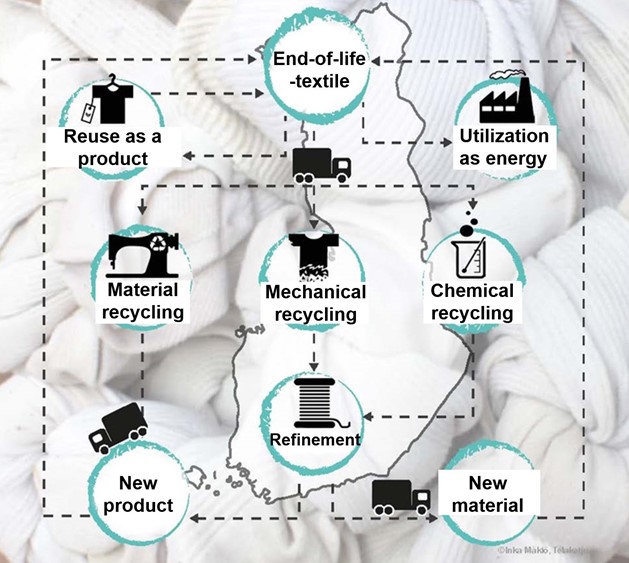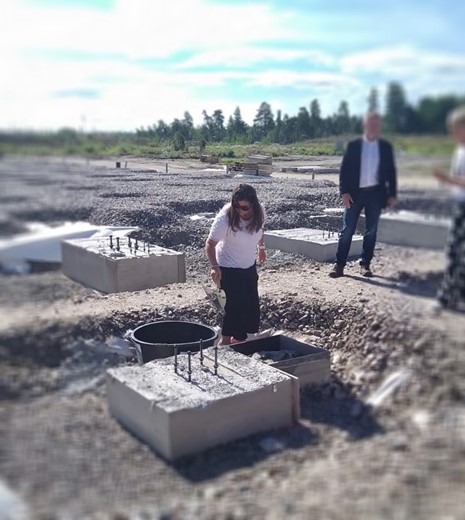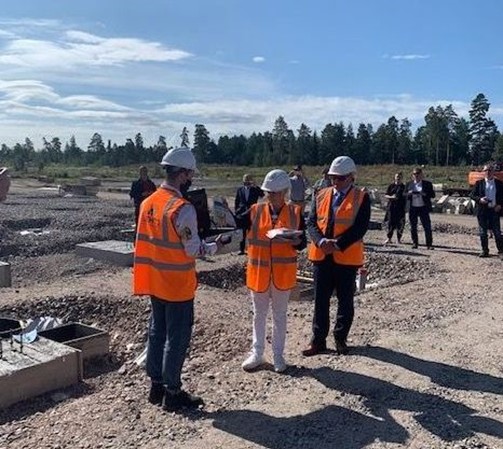The foundation stone of the end-of-life textile refinement plant was laid – the fruits of cooperation are beginning to ripen

Celebration was in order when the foundation stone of the first large-scale end-of-life textile refinement plant of the Nordic countries was laid in Paimio on 18th of August 2020. Every effort has been made for that symbolic moment, together, in belief for a common goal.
The plant, which is built by Rester Oy, will start operating in February 2021 on the end-of-life textiles, of both companies and households. The refinement plant is a big leap towards a more sustainable textile circulation. At the same time, it is also a concrete example of the achievements in the Telaketju network. The network has started to promote the circulation of textiles in Finland through open-mindedness and open collaboration, and the fruits of the work are now beginning to ripen.
The first plans of a national textile collection were already made during the Tekstiili 2.0 (Textile 2.0) project in 2016. Visions have become more precise over the years, and ideas have changed into concrete work, such as zoning, calculations – and the laying of the stone foundation.

“The fact that we are now at this point has required a lot of meeting the right people, as well as a lot of work, research, experimentation and risk-taking. The momentum of the end-of-life textile refinement plant is right now that regulation and people’s awareness strikes hard”, says Project Manager Henna Knuutila from Turku University of Applied Sciences.

The plant could process 10 % of textile waste generated
Rester Oy recycles companies disposal textiles in a processing plant of about 3,000 square meters. Lounais-Suomen Jätehuolto Oy (LSJH), which will be a tenant in the same property, processes household removal textiles on its own line. The future plant will be able to process 12,000 tonnes of end-of-life textiles annually, which is about 10 percent of Finland’s textile waste volume.
As a final product, recycled fiber is produced from both lines, from which yarn and fabric, insulation materials for construction and marine industry, acoustic panels, composites, non-woven and filter materials and other technical textiles, such as geo-textiles, can be produced for numerous industrial applications.
“The processing plant is piloting a new era of circular economy surrounding textiles in Finland. We are launching a system change as pioneers of the industry in Scandinavia. The transition of the textile industry from a linear model to a circular economy is essential, as with virgin materials we cannot maintain the current structure of the textile industry. And why should we? When there is so much recycled material available”, says Outi Luukko, Chairman of the Board of Rester Oy.

From the point of view of Rester Oy’s main owner, workwear supplier Touchpoint, the circular economy plant is not only resource-wisdom but is also necessary from the perspective of the complete life cycle of their responsible workwear collection.
“Getting a local solution to a global problem is a huge leap in the right direction and raises Finland’s profile as a pioneer in circular economy”, Luukko continues.
A full-scale refinement is plant coming up
In Paimio, Lounais-Suomen Jätehuolto (LSJH) processes household removal textiles in its own pilot line. However, consumer removal textiles are heterogeneous in their materials and are therefore a challenging raw material for further processing.
Before processing, removal textiles are sorted by material into different fibre classes using optical identification technology, which LSJH has been involved in developing. This ensures the quality of the raw material and the fibre products produced from it.
“Based on the experience gathered in the pilot line, Lounais-Suomen Jätehuolto is preparing a full-scale processing plant in the Turku region, which will already process the household end-of-life textiles throughout Finland in 2023. The project includes all waste facilities owned by Finnish municipalities”, says Jukka Heikkilä, Managing Director of Lounais-Suomen Jätehuolto (LSJH).
